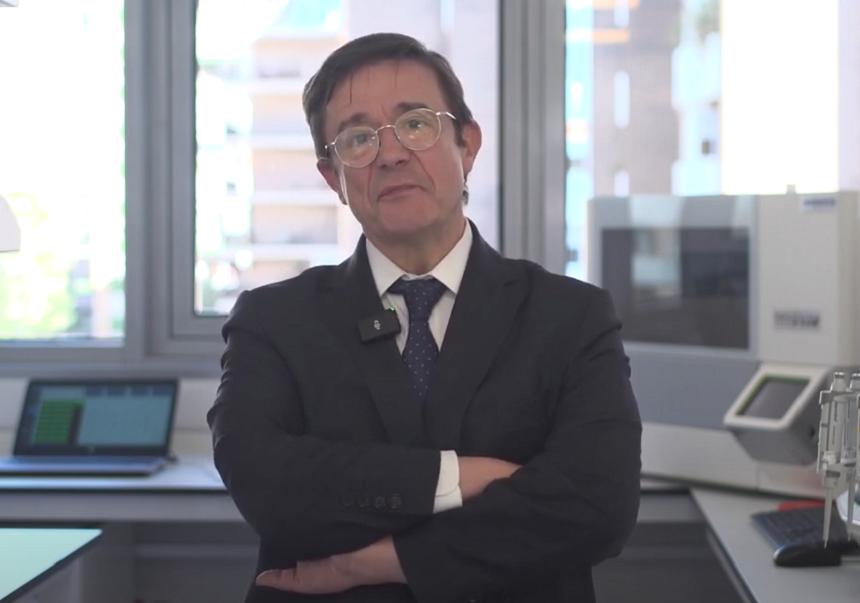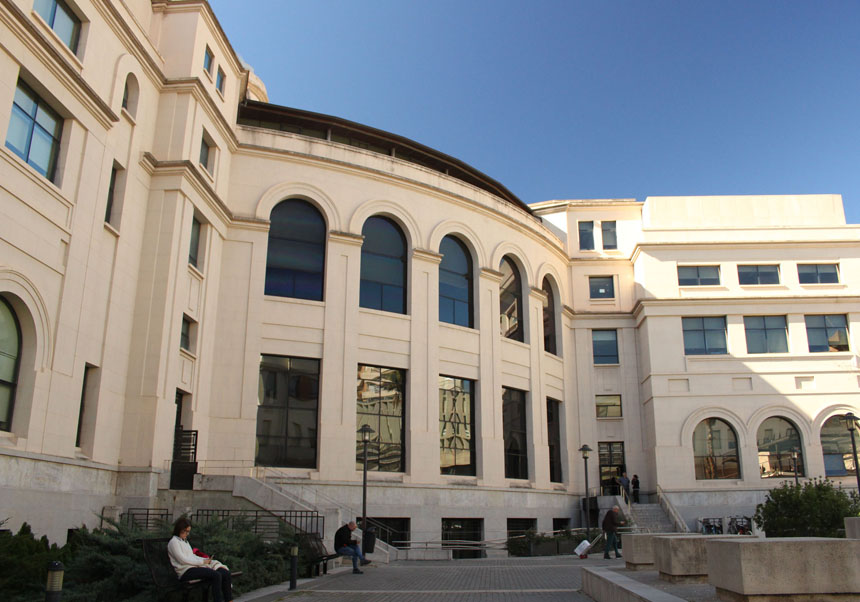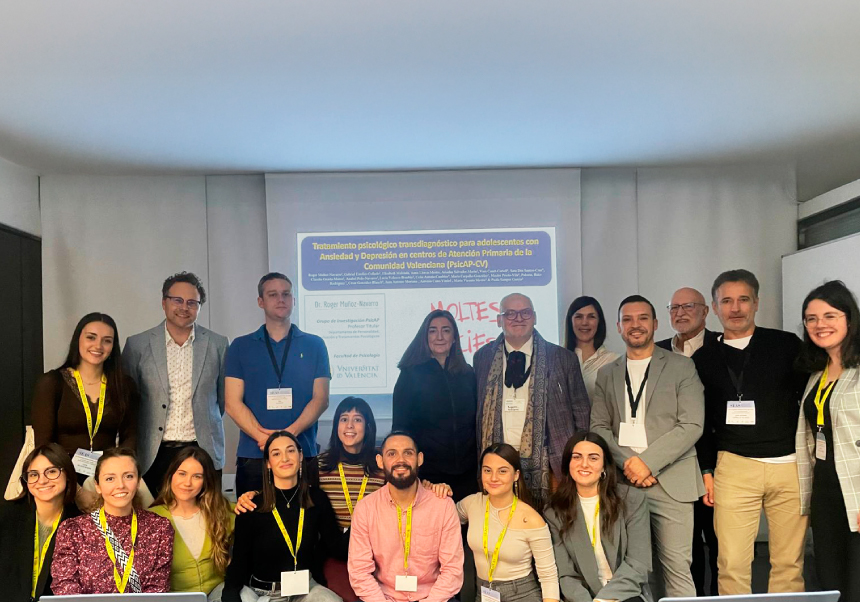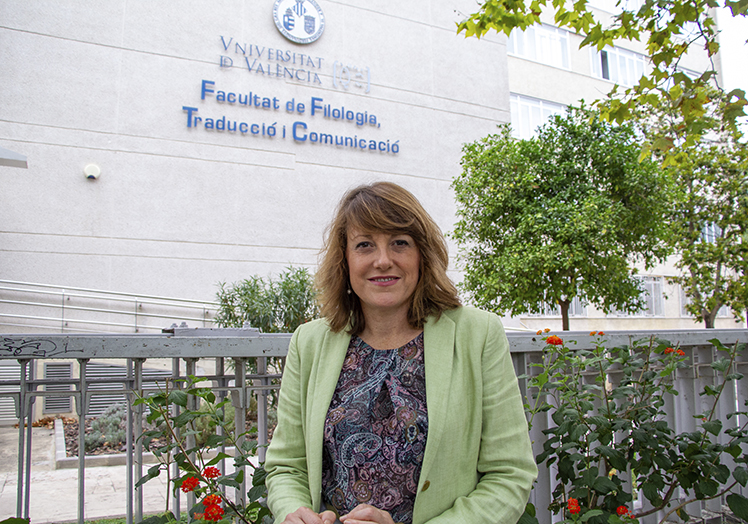The INCLIVA Foundation, in which the University’s excellence groups in Medicine and Dentistry conduct research, celebrates its 25th anniversary
- Scientific Culture and Innovation Unit
- March 3rd, 2025

The INCLIVA Foundation, the Health Research Institute of the Clinical University Hospital of Valencia, is celebrating 25 years since its establishment as the first foundation in the Valencian Community to be affiliated with a public hospital. Among other activities, it manages and promotes biomedical research conducted by the scientific excellence groups of the Faculty of Medicine and Dentistry of the University of Valencia. Its scientific director is Andrés Cervantes, professor of Medicine at the academic institution.
INCLIVA also manages and promotes biomedical research at the Clinical University Hospital of Valencia and its Health Department, as well as at the Carlos Simón Foundation for Women's Health Research. Currently, it has over 700 internationally recognised researchers working across 57 research groups in the fields of oncology, cardiovascular health, metabolism and organ damage, and reproductive medicine. The foundation is equipped with cutting-edge technology to ensure high-quality research.
INCLIVA operates nine in-house platforms. In addition to the five existing ones (Biobank, Precision Medicine Unit, Bioinformatics Unit, Biostatistics Unit and Body Composition Unit), four more have been added in recent months (Biomarker Analysis Unit, Molecular, Cellular and In Vivo Analysis Unit, Analytical Liquid Chromatography Unit and Mass Spectrometry Unit).
Furthermore, INCLIVA also provides access, via the Central Research Unit in Medicine (UCIM) of the University of Valencia, to the Multigenic Analysis Unit, the Personal Autonomy, Dependencies and Severe Mental Disorders Unit, the Flow Cytometry and Cell Cultures Unit, the Animal Housing and Experimental Surgery Unit, the Microscopy Unit, the Medical Genetics and Genomics Section, and the Biomedical Imaging and Metabolomics Section.
The foundation also participates in ten research groups within the Biomedical Research Networking Centre (CIBER) of the Carlos III Health Institute (ISCIII), two national platforms by the ISCIII and eight European networks or platforms.
Additionally, it is a member of the board of directors of the Network of Hospital and Biosanitary Clinical Research Management Entities (REGIC), holding the presidency, and of the BIOVAL cluster of companies of the Valencian Community, of the Valencian Biobank Network (RVB), of the multi-sectoral open innovation initiative promoted by the Valencian Science Parks Network (INNOTRANSFER), and of the Alliance for Translational Research in Rare Diseases of the Valencian Community (AITER).
INCLIVA’s Phase I Oncology Clinical Trials Unit, established in 2004 and celebrating its 20th anniversary last November, is a pioneer in Spain and the only unit in Valencia primarily dedicated to Phase I trials. Over 25 years, it has conducted 205 trials on 1,114 patients, which have led to significant advances that have contributed to improving treatment efficacy for various types of cancer, including breast, lung, digestive, genitourinary and gynaecological cancers.
The Foundation for Research of the Clinical University Hospital of Valencia was founded on 19 January 2000 as a private, non-profit foundation under the patronage of the Generalitat Valenciana. In April 2010, the INCLIVA Health Research Institute was created through specific collaboration agreements with the University of Valencia and the Valencian University Institute of Infertility (IUIVI) for the affiliation of research groups, scientific spaces and equipment. Research in the reproductive field has subsequently been developed through the Igenomix Foundation and, later, the Carlos Simón Foundation.
One of INCLIVA’s key distinguishing features is translational research, which ensures that findings move ‘from the laboratory to the patient’s bedside’ and ‘from the patient’s bedside back to the laboratory’, given that a large part of the research staff visit patients on a daily basis, thus maintaining close personal contact with them.
File in: Investigació a la UV , Finançament recerca , Facultat de Medicina i Odontologia , Difusió i comunicació científica , Col·laboració amb empresa , Grups de recerca , Internacionalització recerca , Recerca, innovació i transferència
















